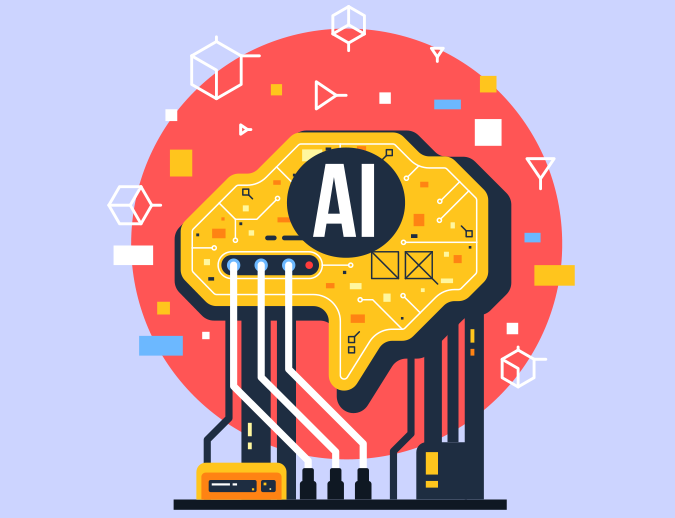May 7th, 2024
The integration of Artificial Intelligence (AI) into injection molding is not just a concept of the future but a present reality that is impacting every segment of the industry. From part and mold design to the processes themselves, AI technologies are proving to have the capability to transform virtually everything – and injection molding is no exception.
Below we will explore some areas of AI potential, and how we have seen businesses take advantage of such new proficiencies.
Design and Prototyping
During the design and prototyping stage, AI’s influence begins with enhancements in efficiency and innovation. Utilizing AI-driven tools allows engineers to create complex, performance-optimized molds that would be nearly impossible to develop manually. These tools automatically generate viable options based on parameters including material, method, budget/time constraints, while drastically reducing the design cycle and material waste.
Companies like General Motors are employing AI multiplicative manufacturing and producing improved lightweight, durable parts. This noteworthy application within the automotive sector will minimize the overall weight of vehicles, optimize production and lower fuel consumption.
Material Selection
Material selection is vital for ensuring the durability and functionality of a final product. AI leverages predictive analytics and “machine learning” to study historical data on material performance, assisting manufacturers who must make informative decisions about inputs that afford the best combination of strength, cost and operation.
AI is appearing in the electronics industry where usage helps in selecting polymers that not only meet thermal and electrical insulation requirements but also improve the bottom line for mass production settings. These insights tend to validate expert advice and have shown great success.
Method Optimization
AI shines brightly in process enhancement by examining data from sensors embedded in molding machines to boost parameters like temperature, pressure and cooling periods. Adjustments can then be made in real time, improving product quality and yield.
AI tech is being adopted in molding practices because it can dynamically fine-tune related criteria automatically. This human-like intelligence not only decreases potential defects like warping or sink marks but enhances the entire productivity of the whole fabrication procedure.

Quality Control
For quality control, AI-powered vision approaches provide a significant advancement over manual inspections. Hundreds of parts per minute can be assessed, identifying critical defects that are not visible to the naked eye.
A real-world application is seen in consumer goods manufacturing, where high-speed cameras coupled with AI software ensure that only parts meeting strict quality standards reach the consumer. This new and improved technology is decreasing recalls and heightening brand reputation across the industry.
Supply Chain and Inventory Management
AI’s predictive quality is playing a crucial role in managing the complexities of supply chains. By forecasting demand and production rates, inventory will be managed more competently, cutting holding costs and unnecessary waste.
Companies are integrating AI into their supply chains to predict fluctuations in raw material availability and price changes, allowing them to adjust their procurement strategies proactively. These investments are hoping to relieve increasing recent supply chain issues and keep consumers happy with continued cost control.
Customization and Client Interaction
With AI, the scope for customization in injection molding expands as these systems can facilitate assimilation of specific customer preferences into the design aspect seamlessly. This personalized capability is particularly valuable in markets such as medical devices and consumer electronics, where differentiation is key.
In the medical field, AI-driven solutions are used to customize plastic medical components according to specific patient needs, such as tailored elements for hearing aids or personalized surgical instruments. These capabilities open the door to a more advanced medical space where modifications are endless.
The ongoing expansion and integration of AI into the injection molding industry is starting an enriched era of manufacturing where productivity, modernization and customization reach unprecedented levels. As these technologies continue to evolve and mature, their adoption is set to escalate, promising not only greater operational models and product quality but also the ability to produce superior complex and specialized outputs.
This evolution requires constant learning and adaptation but could mean substantial benefits, including cost reductions, better productivity and the adeptness to meet customer demands more precisely.
Here at Slide, we acknowledge that the future of injection molding is not just about keeping up with technological trends but leveraging them to stay ahead in a competitive market. As the resources of AI evolve, we are looking forward to seeing where it takes us!




